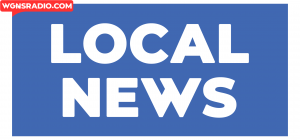State Senator Bill Ketron (R-Murfreesboro) won approval of legislation on Monday that would provide a framework to allow Private Public Partnership (P3) agreements for certain transportation projects. The bill aims to improve safety, reduce congestion and increase capacity on Tennessee's roads, as well as encourage economic growth.
Typically with a P3 agreement, the public sector maintains ownership of the asset but the private partner manages construction, operation, and maintenance through the life of the contract.
Senate Bill 2093, sponsored by Senator Bill Ketron (R-Murfreesboro), authorizes partnerships between private entities and state and local governments for the private development, redevelopment and operation of transportation facilities. Transportation facilities are defined, under the bill, to include any mass transit system intended for shared passenger transport services to the general public.
"With long-term funding sources for transportation being uncertain, the ability to enter into private-public partnerships will allow us to finance projects that we might not otherwise be able to even consider," said Sen. Ketron. "This legislation is the result of months of collaboration by many groups that understand the necessity for forging ahead to find solutions to the challenges we face to meet growing transportation demands in Tennessee. It would give us another tool in the toolbox to address those needs."
The bill authorizes a state or local government entity, or agencies created by them, to receive, consider, evaluate and accept proposals for a qualifying transportation facility. It details the procedures for doing so, including that the private entity must first obtain state approval before entering into a comprehensive agreement with the state or local government. The request must also be reviewed by the legislature's Fiscal Review Committee prior to the agreement to ensure transparency and oversight. Under the proposal, any project estimated to be over $50 million would require an independent audit to be paid for by the private entity. This audit will be subject to public disclosure, other than proprietary information. If any state funds are expended for the purposes of a P3 agreement, it must be appropriated in the general appropriations act.
The bill is pending action in the House of Representatives, where it is scheduled for a vote in the House Finance Subcommittee tomorrow.












